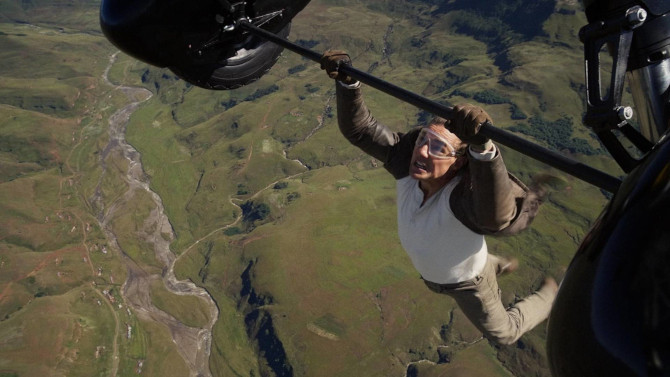
An Impossible Mission
How do you wrap up a franchise like Mission: Impossible? That is, if this even is the final installment... as they’ve made it sound (while at the same time, stars not named ‘Tom Cruise’ pipe up and suggest that might not be so). It has been twenty-nine years, with different writers and visionary directors – from twisty Brian De Palma and the action hair stylings of John Woo, to the lens flares of J.J. Abrams and animation expert Brad Bird, it was only about ten years ago that the franchise decided to opt for The Usual Suspects scribe Christopher McQuarrie for the final four. To return to that opening question once more, you could end with a Sopranos’ style cliffhanger, simply make another entertaining movie like the many before – like Everybody Loves Raymond did it with its final episode, or try to tie everything up in a neat little bow by bringing everything together as the Daniel Craig era did with James Bond. Well, it is definitely more along the lines of the latter example, with some distinct differences.
-
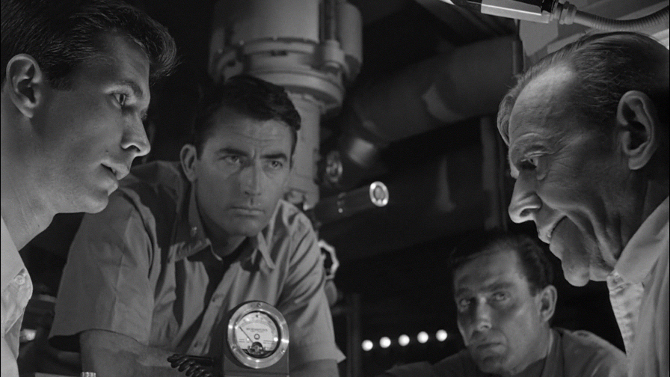
Life’s a Beach
On the BeachApril 24, 2019There was something uniquely different about the Cold War. . .the intangible nature of a symbolic wall separating West from East, having no troops on the ground, no bombs being dropped, simply an ever-growing nuclear arms race – unnerving in how one twitchy finger could change the world in an instant. A fear no less frightening, for the unknown is often far worse. A cautionary ‘what if’ tale, Stanley Kramer’s On the Beach (1959) finds the world having been mostly destroyed by a nuclear war, with only Australia having thus far evaded the ravaging power of radiation in the air. With the rest of the world silent, those remaining attempt to live their lives Down Under. But is doom impending? Estimates claim that extinction levels of radiation will reach the island in less than six months. Fascinating in its depiction, some do their duty (a butler-like waiter at the poshest of conservative private clubs continuing with his job; the assistant to one of the top military men constantly remaining by his side), while others cling to hope. . . some simply drink (a funny scene finds two elitists lamenting that the club overstocked on Port – and that it will go to waste).
-
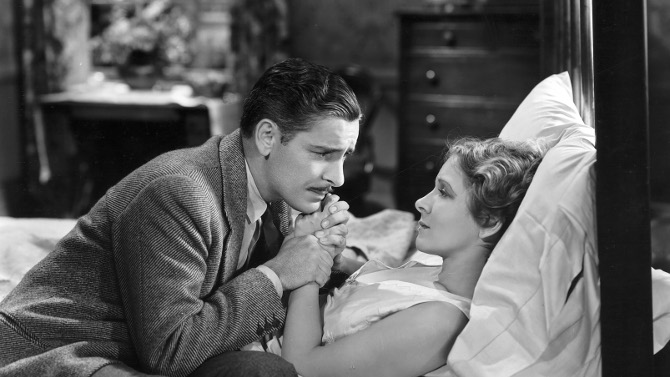
Not the Same Old Song and Dance
ArrowsmithApril 17, 2019An early talkie from iconic director John Ford (Stagecoach; The Quiet Man; The Searchers), 1931's Arrowsmith is no western (despite arrow being in the title), rather, it takes a sweeping look at the life of Dr. Martin Arrowsmith (Ronald Colman – in a Clark Gable-like performance), from an opening scene in his childhood to his work as a researcher in New York – where he develops a vaccine that he administers during a plague. Earning four Academy Award nominations, namely Best Picture, Writing-Adapted, Cinematography, and Art Direction, the filmmaker’s skill is immediately evident – especially impressive as this is an early talkie – where most directors struggled to bring the style from the silent era forward due to new challenges (overly sensitive microphones, stagnant camera work used to show the characters as they speak, etc. . .).
-
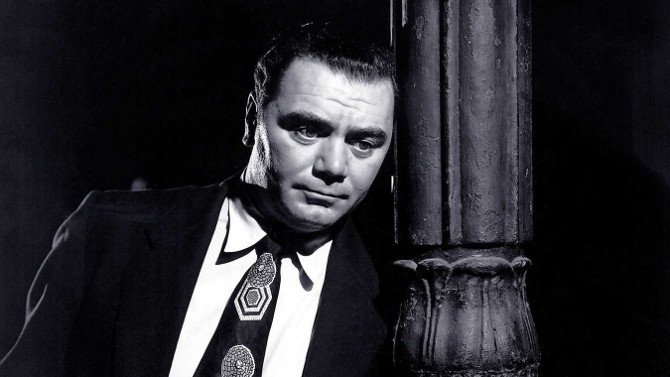
Ernest Falls in Love
MartyApril 9, 2019Taking the world by storm, 1955's Marty, a simple, heartfelt, honest, and poignant story of one man’s Saturday night (and the following Sunday), won both the Palme D’Or at the Cannes Film Festival (the first year the award was named thusly) and Best Picture at the Academy Awards – the first, and to date, only motion picture to win both coveted prizes (though Billy Wilder’s 1946 film noir The Lost Weekend also won the two top prizes, though at that time, the Cannes Award was known as the Grand Prix du Festival International du Film). It was also a major box office sensation. Following thirty-four year old butcher Marty Piletti (Ernest Borgnine – acting since 1951, he had his first big break in 1953's From Here to Eternity), he is an everyman – a warm, caring, short man who is a little heavy round the middle. . . in his mid thirties, he is the last in his large Italian-American family to remain unmarried.
-

I Love You, A Bushel and a Peck
To Kill a MockingbirdApril 5, 2019Arguably one of the greatest adaptations of all-time, 1962's To Kill a Mockingbird is a masterclass in writing (Horton Foote won the Oscar for Best Adapted Screenplay), direction (Robert Mulligan), cinematography (Russell Harlan), and, something not always talked about, casting. You would think that one of the most iconic films to have ever come out of Hollywood would have had an easy time being made. . . yet, Universal really had no interest in making the movie (lacking action, a love story and a typical Hollywood ending, they felt it may feel bland on the screen) – that is, until Gregory Peck fell in love with the piece and signed on to do it (oh, how star power changes a studio’s perspective on things).
-
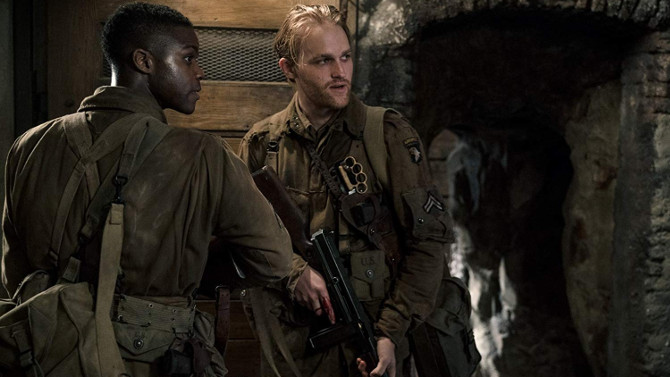
Overlord Overload
OverlordMarch 30, 2019A ‘B’ movie with loftier aspirations, 2018's Overlord, written by Billy Ray, directed by Julius Avery, and produced by J.J. Abrams’ Bad Robot Productions, is one of those rare movies that flips the script halfway through. . . but more on that later. On the eve of the D-Day invasion (during World War 2), a paratrooper squad has been given the gargantuan task of parachuting into a small town in France. . . their mission: to destroy a radio tower attached to an historic church – thus allowing the Allies to gain an upper hand during the paramount, multi-country attack the next day.
-
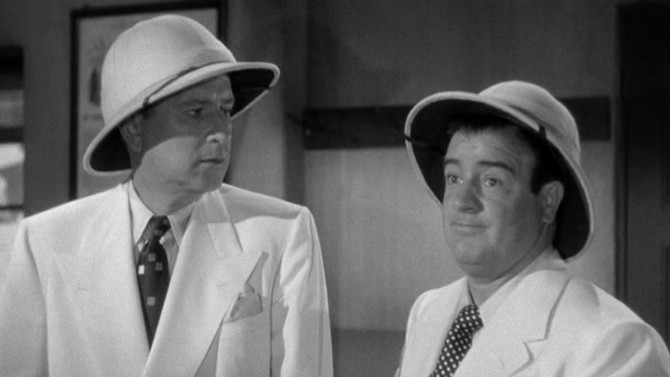
Lougennaire’s Disease
Abbott and Costello in the Foreign LegionMarch 26, 2019What do boxing promoters have to do in the Middle East? Other than throwing a he-jab or two (I know, I know, a touch lame), absolutely nothing, unless you are caught up in another one of Bud and Lou’s zany misadventures. . . namely, Abbott and Costello in the Foreign Legion (1950). Directed by Charles Lamont (his first of eight features with the comedy team –the efficient filmmaker was not overly excited to head these simple projects) and written by frequent A&C screenwriters’ John Grant (every one except Lost in Alaska and Dance With Me, Henry), Martin Ragaway and Leonard Stern (both wrote three), the story finds two boxing promoters, Bud Jones (Bud Abbott) and Lou Hotchkiss (Lou Costello) – a rare time the pair used their first names, losing control of one of their star wrestlers, Prince Abdullah (William ‘Wee Willie’ Davis) – who is infuriated that he is slated to lose his next match, returning home to Algiers instead of taking the loss (but not before roughing up poor Lou – who did all of his own wresting stunts in the film – leading to a wrenched arm socket and a stretched tendon).
